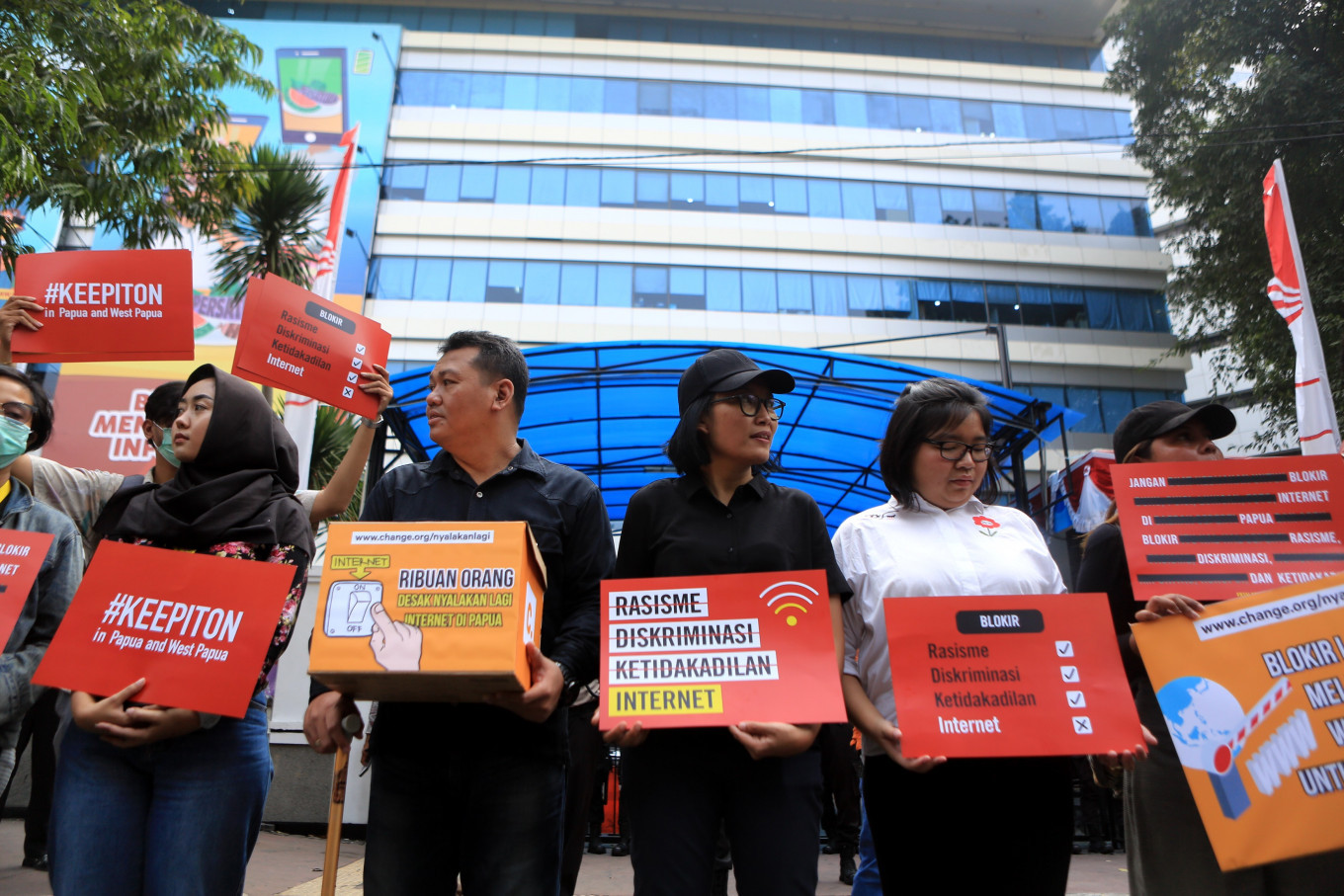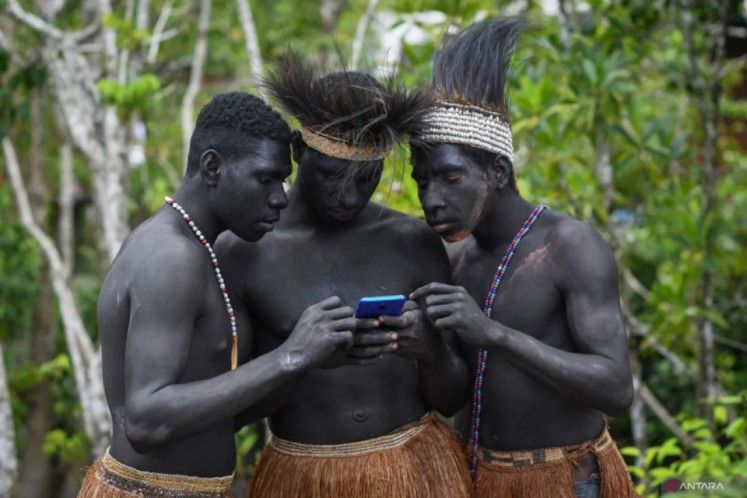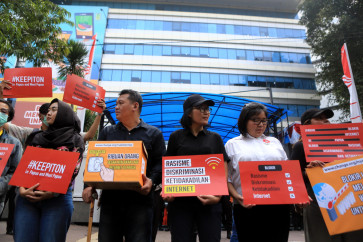Popular Reads
Top Results
Can't find what you're looking for?
View all search resultsPopular Reads
Top Results
Can't find what you're looking for?
View all search resultsInternet blackout in Papua, cure or curse?
Indeed social media played a part in flooding the the internet with information related to incidents inside and outside Papua. But the government’s restriction policy has hardly helped calm Papua; rather it has increased the possibility of human rights violations occuring there.
Change text size
Gift Premium Articles
to Anyone
S
oon after mass protests escalated in Papua in reaction to racial abuse against Papuan students in Surabaya, East Java, on Aug. 19, the Communications and Information Ministry announced an internet blackout in the country’s easternmost territory to prevent hoaxes from spreading there.
The ministry promised to stop the blackout by 11 p.m. on the same day as long as the situation in Papua improved. It turns out the blackout has continued until today.
Indeed social media played a part in flooding the the internet with information related to incidents inside and outside Papua. But the government’s restriction policy has hardly helped calm Papua; rather it has increased the possibility of human rights violations occuring there.
The blackout is flawed for two reasons. First, it exacerbates the isolation of the already isolated region, Second, the policy infringes the principle of accountability.
The immediate decision to deny Papua access to the internet is a cause for concern, given the fact that many people in the provinces of Papua and West Papua have endured isolation for many years.
Internet connectivity is highly concentrated on Java and Sumatra, where around 77 percent of the country’s internet users live according to Indonesia Internet Service Provider Association (APJII) data from 2017.
With that in mind, the purpose of preventing the massive circulation of hoaxes across Papua through the internet seems too good to be true, especially if we consider the quality of internet speed and the amount of necessary telecommunication infrastructure there. There are only 4,644 base transmission stations (BTS) in Papua, or just over 10 percent the number operated by state-owned telecommunications company Telkomsel in Jakarta and West Java.


















